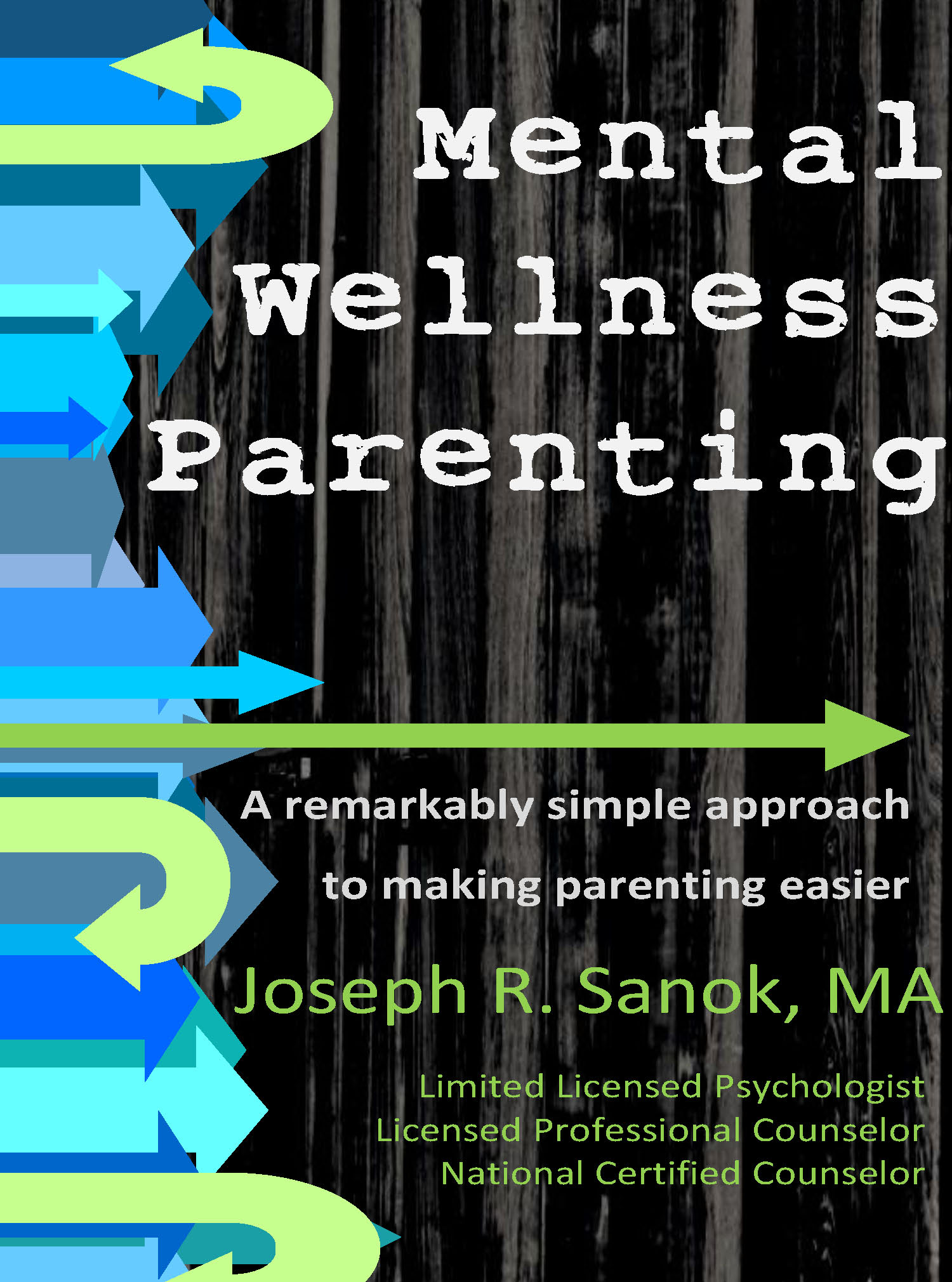[pinit]
Joe’s New Book
Mental Wellness Parenting | A remarkably simple approach to making parenting easier
From Mental Wellness Parenting | A remarkably simple approach to making parenting easier:
Control vs. Voice
So how do we use this new information about guiding our kids to help them change their behavior? Ultimately, you have no control over your child. They make decisions every day. They are their own persons.
Webster’s defines “control” as: “To exercise restraining or directing influence over. To have power over. Reduce the incidence or severity of especially to innocuous levels <control an insect population> <control a disease>”
The part of this definition that I like is the “directing influence over”. I would argue that this comes less from control and more from having a voice in your child’s life.
One of Webster’s definitions of “voice” is, “wish, choice, or opinion openly or formally expressed.” So to have a “voice” in your child’s life is for your wishes, choices, and opinions to somehow take root in them.
Think about who has a voice in your life. Who can say to you, “Here is my opinion” and you consider it?
Is it your mom?
Dad?
Best friend?
Wife or husband or significant other?
How did they gain that voice in your life? Did they do something? Did they act a certain way? Is it because you have seen how they live their life and you respect that? Do you aspire to be like them or certain parts of them? What is it that allows them to have that voice, not control, in your life?
I believe that it is trust. They somehow built trust in you. Building a voice comes from trust. For kids, that trust comes from three specific things. To build trust as parents we must demonstrate:
- Consistency and love
- Set an example
- Spur something in our children that brings life
Consistency and Love
In future chapters I will discuss more in-depth what this looks like and ways that you can increase consistency and demonstrate your love. One definition of “consistency” is “agreement or harmony of parts or features to one another or a whole.”
To be a consistent parent, you have to have harmony in what you do. What does this mean? It means that it is better to say nothing at all, rather than a false promise. By false promise I mean not following through on things you say. If you give a warning to a child regarding their behavior, then follow through.
When you start thinking this way, two things will happen inside of you. First, you will slow down the frequency of threats that you make because you know that you need to follow through. Also, you will evaluate the intensity of threats.
One thing about threats: they don’t work.
Threats don’t work
Why don’t threats work? Think about it this way. Your boss keeps coming in your office for two weeks reminding you of a date that a report is due. She says, “If it’s not on my desk on November 12th, then I’m writing you up.” November 12 comes and goes, you had some crazy things happen in your family and you just couldn’t get it done.
Then in January she does the same thing for the report due January 29th. Again you miss the mark and it comes and goes, yet no write up. Imagine this happened over 18 years in the company. Sometimes she does write you up sometimes she doesn’t.
Now imagine a different scenario. At a staff meeting she announces that reports need to be timely. To try and help the staff keep it in their mind, if the November 12th report is in on time you will get an overnight at the hotel of your choice and if not, then you will be written up.
No more reminders.
Then she does what she says.
Often parents believe that they have a voice in their child’s life and that is enough, but really a voice is earned through consistency. Your action of giving positive or negative consequences will speak more than anything you could say ahead of time or threaten.
Even when threats do seem to work, it is usually not based on building a long-term voice in your child’s life.
The second part of this is building love. I trust that you love your child deeply; otherwise you would not be reading this book. So it is not how to build your love for your child that is the issue, it is how do children receive love?
Consistency in parenting helps kids feel safe. If you are about to manage a child in a grocery store and help her choose good choices there, then you can definitely take on any monster, bad dream, bully, and tornado. Kids fear all sorts of things.
A psychologist named Maslow created what he called the “Hierarchy of Needs”. His belief was that if basic needs are not met is it is harder or impossible to work toward higher needs. Thus, if safety needs of security aren’t met, it is harder to build feelings of love and belonging.
I had a client recently who had her apartment broken into. She was staying up all night because she was scared someone would break in, then she was sleeping during the day, but her classes were slipping. Her feelings of lack of safety made it harder for her to do more complex thinking like that which is required in school.
The same is true for kids, as they see that you can handle a variety of situations, they will trust that you can protect them…
Joseph R. Sanok, MA, LLP, LPC, NCC is a licensed counselor and owner of Mental Wellness Counseling. He is also the author of the books Mental Wellness Parenting | A remarkably simple approach to making parenting easier
and Practice of the Practice | A Start-up Guide to Launching a Counseling Private Practice



